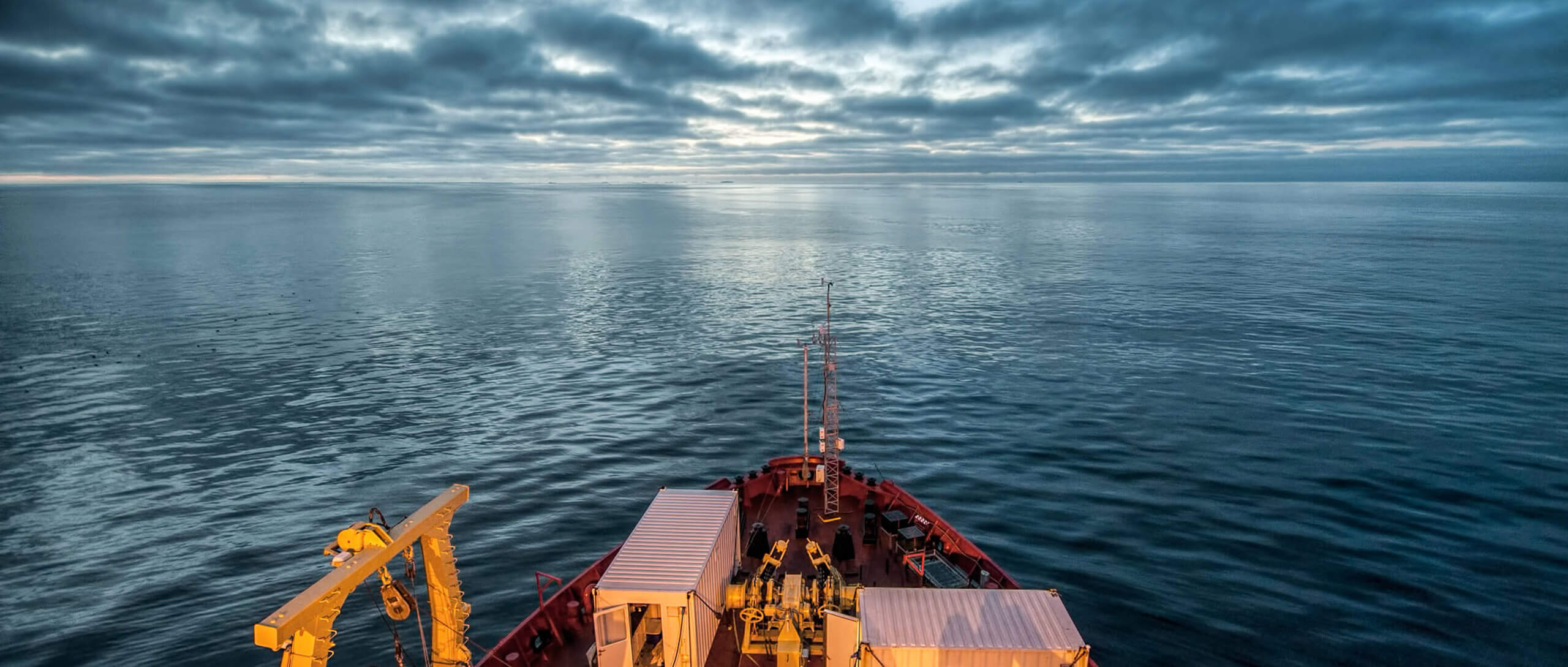Sentinel North’s unique experiential training allows students and postdoctoral fellows from around the world to immerse themselves in northern research.
With an approach based on transdisciplinarity and the application of learning in northern or highly technological environments, these training activities provide an opportunity to interact with peers from other disciplines as well as high-profile scientists and experts. The participants also get a chance to learn with world-class research infrastructure such as the CCGS Amundsen research icebreaker or the Centre for Optics, Photonics and Laser (COPL).
Advanced Field School in Computational Ecology
May 19 to 26, 2023, Couvent de Val-Morin (Québec, Canada)
|

|
This advanced school in computational ecology focuses on predator-prey dynamics and analysis methods for complex datasets.
Through a novel experiential game-based approach (the "TrophIE game"), participants will be introduced to state-of-the-art methods for monitoring and modelling behaviour and interactions in animal ecology, under the supervision of experienced mentors from various disciplines like biology, ecology, physics, and computer science.
Applications are accepted until February 1st, 2023.
Learn more
|
Arctic Snow School : Physics of Arctic Snowpacks and Climate
April 1st to 8, 2023, Canadian High-Arctic Research Station (CHARS), Ikalutuuttiaq (Cambridge Bay, Nunavut, Canada)
|

|
This field school aims to provide an advanced hands-on training to raise awareness about Arctic-specific snow processes and their relationship with climate through detailed observations, state of the art physical measurements and modeling.
Exchanges and side workshops with Inuit community members will allow students to experience the richness of indigenous knowledge while gaining a deeper understanding of the Inuit’s perspective on snow.
Applications are accepted until January 15, 2023.
Learn more
|
Nordicité et avancées en science des produits naturels
July 8 - 16, 2022, Whapmagoostui-Kuujjuarapik (Nunavik, Canada)
|
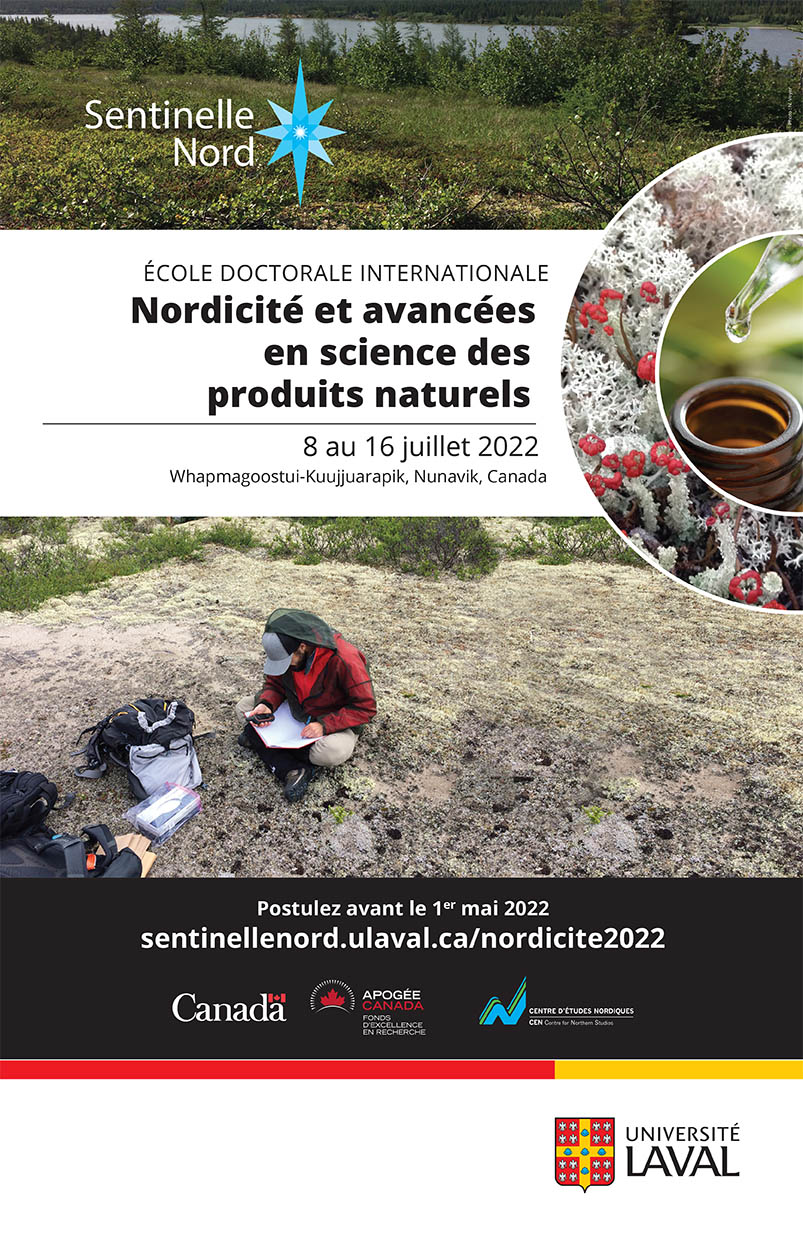
|
This summer school on the theme of northern natural products offers young researchers an integrative and practical experience with a wide range of disciplines such as chemistry, plant biology and ecology, phytochemistry, pharmacognosy and ecological economics.
The school also proposes several exchanges with local indigenous communities in order to cross traditional knowledge and new technological advances.
Learn more
|
Complex Networks Winter Workshop (CNWW)
January 3-16, 2021 - virtual format
 |
The Complex Networks Winter Workshop (CNWW) offers an extraordinary opportunity for participants to engage in rigorous transdisciplinary complexity science research alongside some of the top researchers in the field of networks.
The workshop is co-organized by the Complex Systems Center of the University of Vermont, and the Sentinel North program of Université Laval.
Learn more
|
Bootcamp : acquisition et traitement de données : du capteur à l'information
February 21 - 23, 2020, Québec, Canada
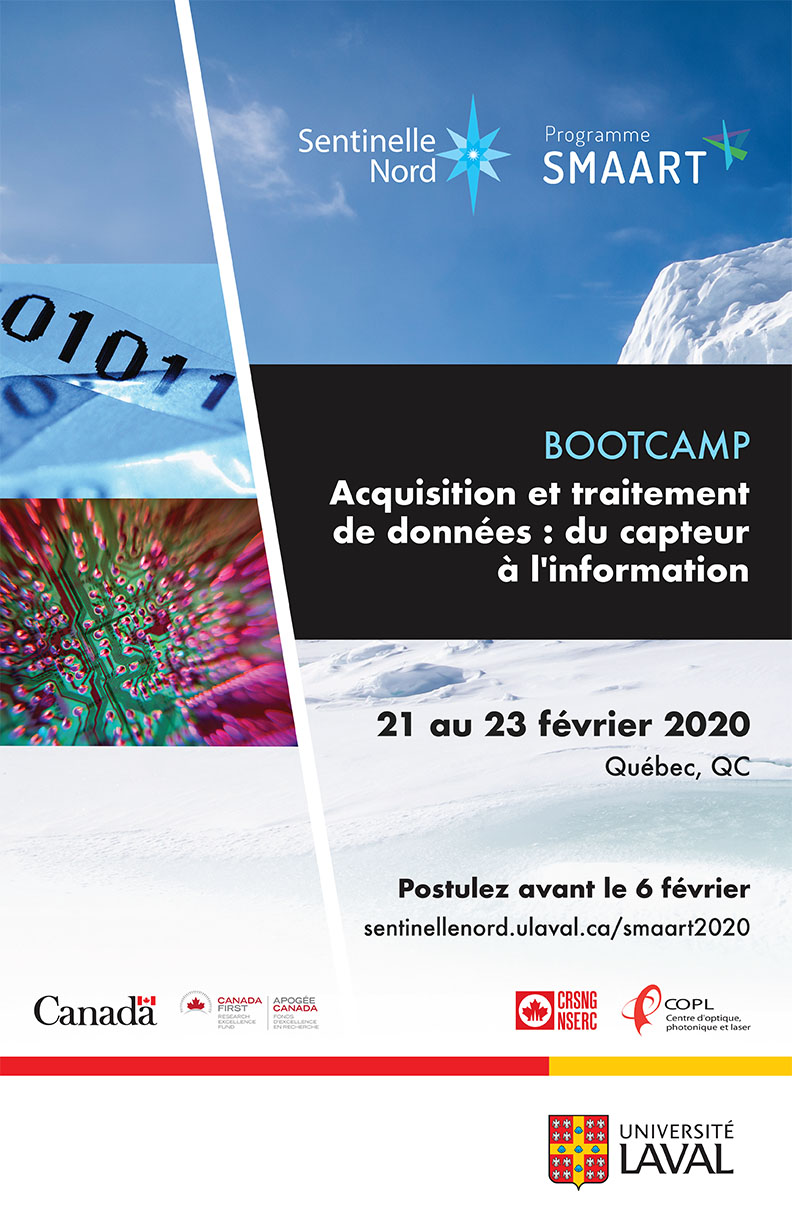 |
This bootcamp provides participants with an integrative training program aimed at developing theoretical and practical knowledge in data acquisition and programming.
For this activity, scientific experts will join participants to explore new avenues in their research projects. The bootcamp will also allow the development of transversal skills such as networking and scientific collaboration, communication and planning in a transdisciplinary research context.
Learn more about this bootcamp
|
Complex Networks Winter Workshop 2019
December 15-20, 2019, Quebec city, Canada
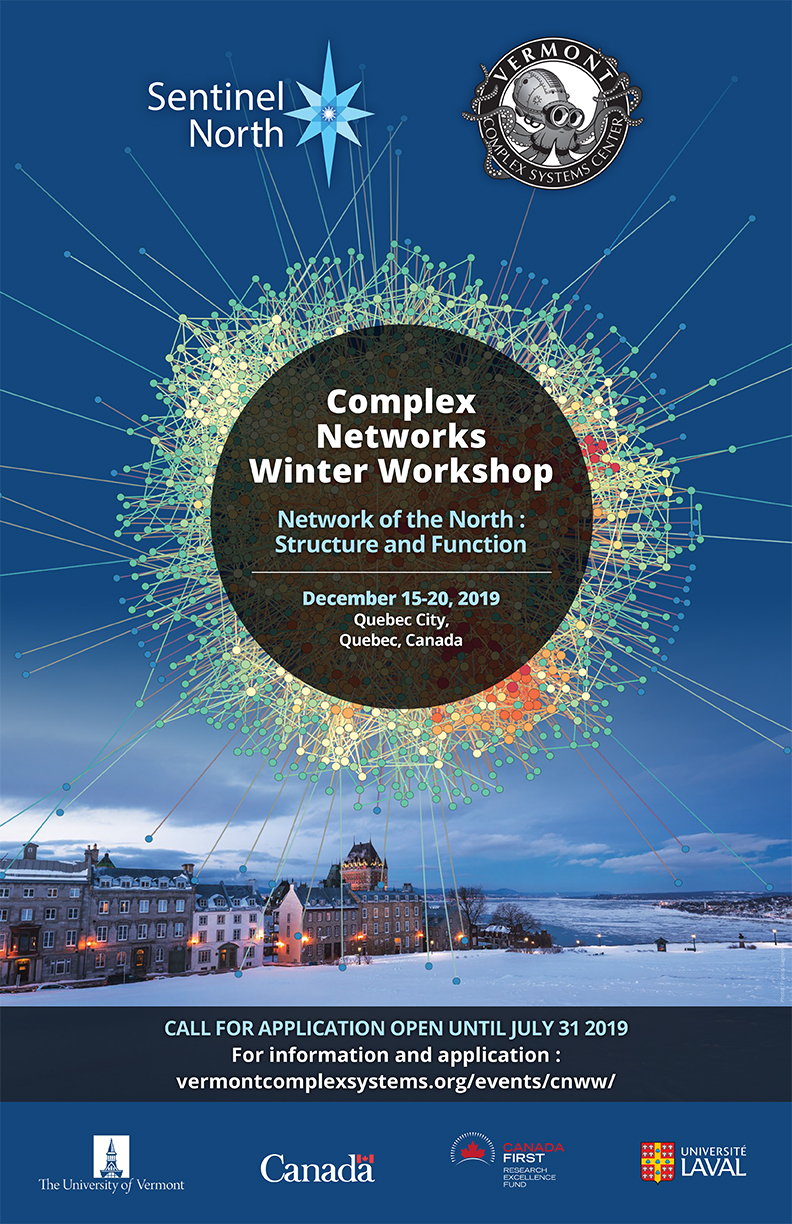 |
The Complex Networks Winter Workshop (CNWW) is a week-long international school that offers an extraordinary opportunity for participants to engage in rigorous transdisciplinary complexity science research alongside some of the top researchers in the field of networks.
The workshop is co-organized by the Complex Systems Center of the University of Vermont, and the Sentinel North program of Université Laval.
Learn more about this workshop
|
Arctic Microbiomes: From Molecules and Microbes to Ecosystems and Health
July 2-12, 2019, Whapmagoostui-Kuujjuarapik, Nunavik, Canada
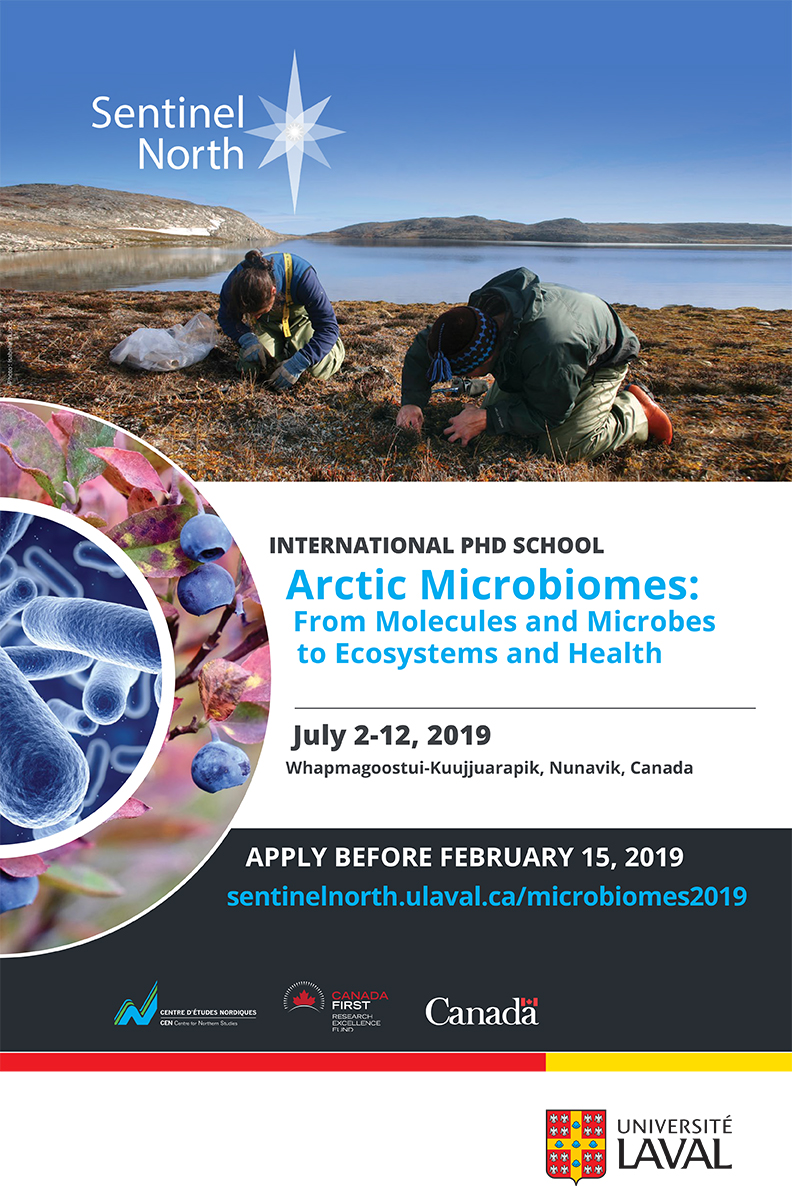 |
The International PhD School on Arctic Microbiomes takes place at the Centre d'études nordiques (CEN) research station in Whapmagoostui-Kuujjuarapik from July 2-12, 2019. This unique transdisciplinary training program aims at understanding the key role of microbiomes in shaping the structure and functioning of the Arctic, including their impacts on food webs, ecosystem services, and human health.
The school provides participants with an integrative, hands-on experience spanning a wide range of disciplines such as Arctic microbiology and molecular ecology, biogeochemistry, environmental optics/photonics, astrobiology and human health.
Learn more about this School
|
Permafrost Engineering Applied to Transportation Infrastructure
June 2-8, 2019, Aurora College, Inuvik, Northwest Territories, Canada
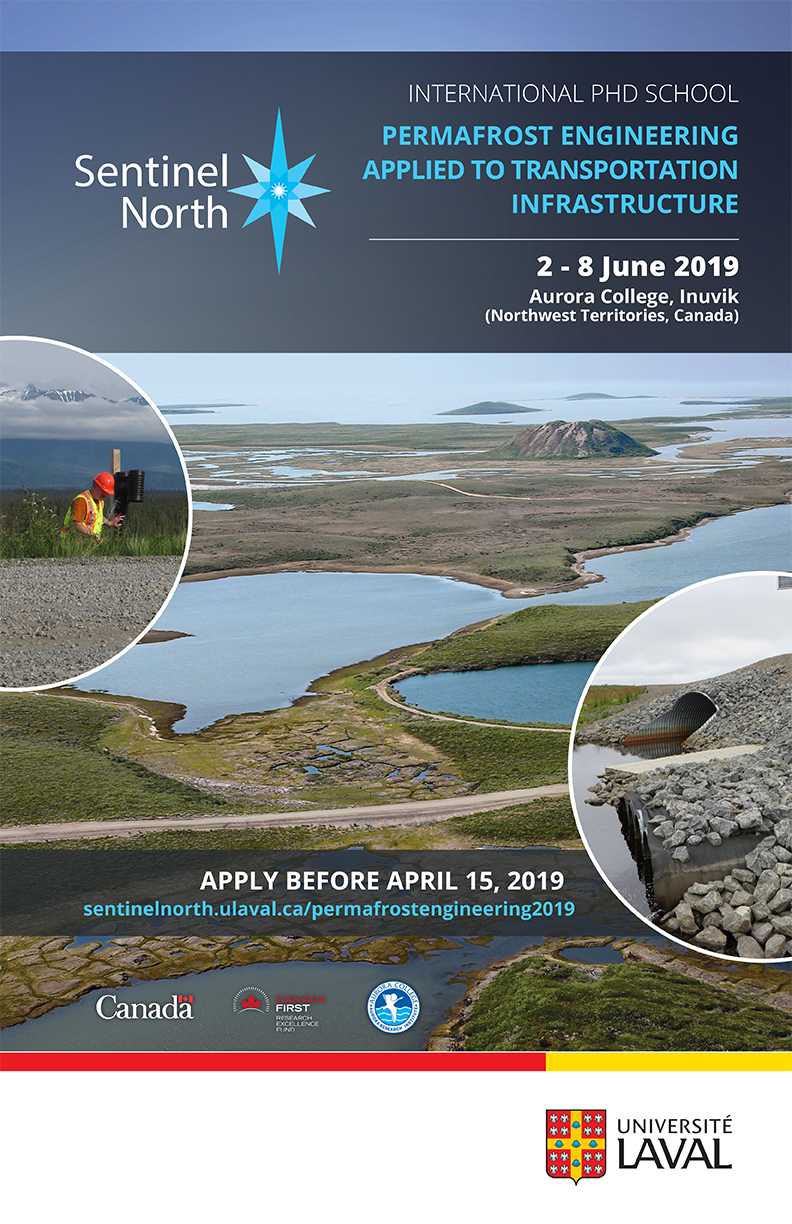 |
This International PhD School (IPS) is an advanced, graduate level course on permafrost engineering applied to transportation infrastructure.
Held on the northernmost campus of the Aurora College in Inuvik, Northwest Territories, this class includes lectures, practical exercises, two field visits on sites where interesting permafrost and engineering features can be observed (Dempster Highway and Tuktoyaktuk Highway), and a seminar on advanced instrumentation and communication for infrastructure monitoring.
Learn more about this School
|
Bootcamp: From Development to Deployment of an Optical Tool in a Northern Environment
February 26-28 2019, Forêt Montmorency, Réserve faunique des Laurentides, Canada
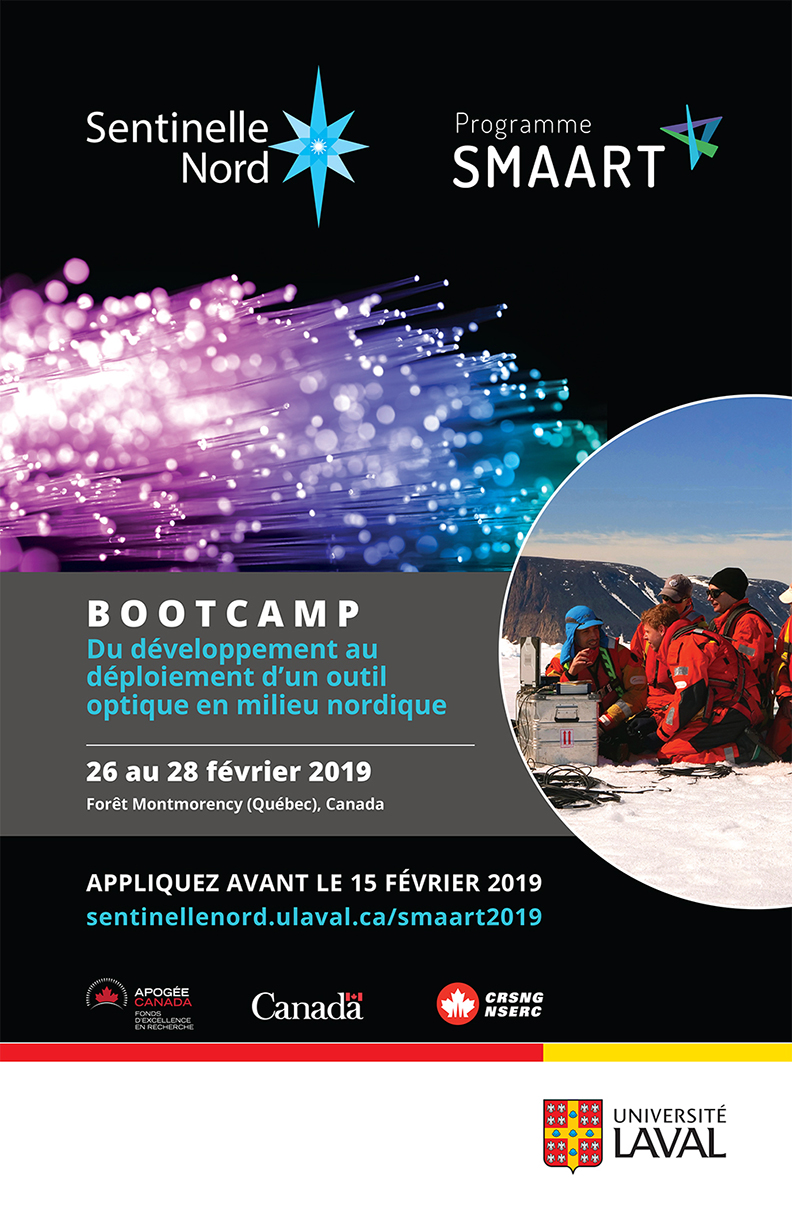 |
This bootcamp offers graduate students in the fields of engineering and optics-photonics a practical and integrative experience to develop an optical sensor adapted to the constraints of northern regions.
The agenda consists of fruitful discussions, theoretical training and practical workshops, including the development of a light detection tool, the “Flat Light” detector.
Learn more about this Bootcamp
|
Complex Networks Winter Workshop 2018
December 15-21, 2018, Quebec city, Canada
 |
The Complex Networks Winter Workshop (CNWW 2018) is a week-long international school that offers an extraordinary opportunity for participants to engage in rigorous transdisciplinary complexity science research alongside some of the top thought leaders in the field of networks. The CNWW is designed for graduate students, postdoctoral fellows, and professionals. The lectures will present open problems and recent advances in the field of complex networks.
The CNWW is a collaboration between the Complex Systems Center of the University of Vermont, the Networks Science Institute of Northeastern University and the Sentinel North Program of the Université Laval.
Learn more about this School
|
Shedding Light on Arctic Marine Ecosystem Services
July 12-24, 2018, Baffin Bay, Nunavut
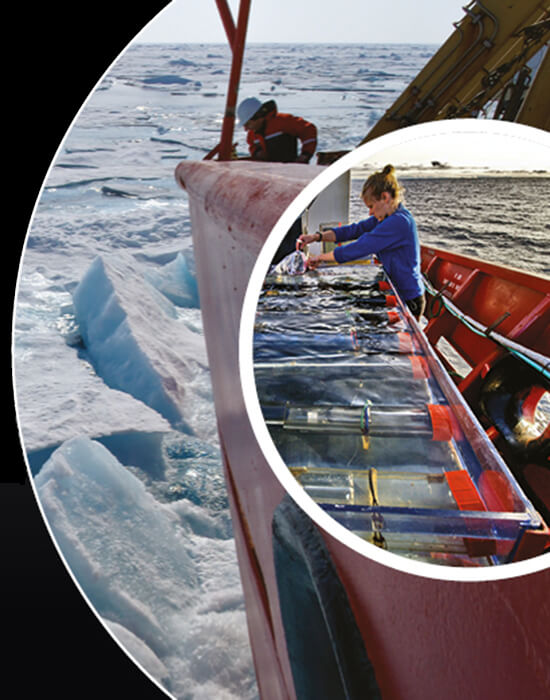 |
Taking place on board the Canadian research icebreaker CCGS Amundsen deployed in Baffin Bay and the Fjords of Baffin Island, Nunavut (Canada), this school provides international students with a unique opportunity to interact with high-profile scientists as part of a transdisciplinary and highly technological training program aiming to demystify the role of light in driving arctic marine food webs, ecosystems services, and human health in the North.
The school will provide participants with a hands-on and integrative experience with a wide range of disciplines such as optics / photonics, Arctic marine biology and ecology, marine physics, biochemistry, remote sensing and human health.
Learn more about this School
|
The Changing Cryosphere: From Sensors to Decision-making
March 2-9, 2018, Iqaluit, Nunavut
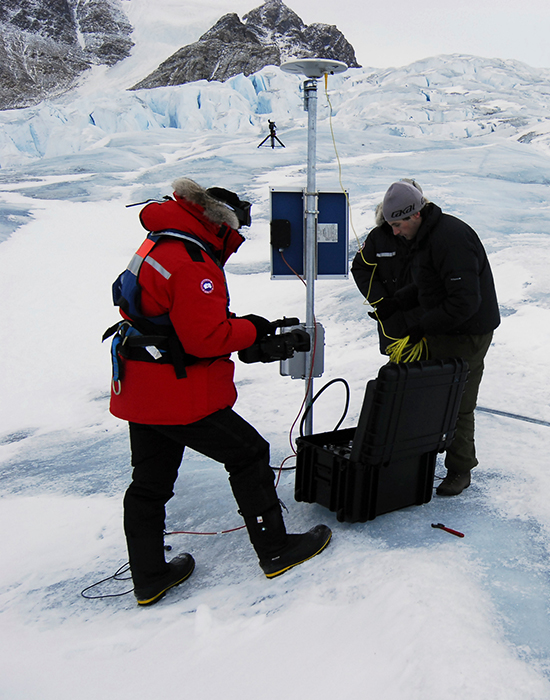 |
Taking place in Iqaluit, capital of Nunavut, Canada, the school will focus on an integrative, transdisciplinary and innovative training program supported by internationally renowned professors and local experts. Under the overarching theme of a changing arctic cryosphere, participants will get hands-on experience with a wide range of disciplines such as optics/photonics, arctic ecology, chemistry, geology and human health.
Participants will also be provided tools allowing them to think outside the box and harness new aspects of the changing arctic cryosphere, both scientifically and culturally.
Learn more about this School
|
For more information, please contact:
Marie-France Gévry
Training programs coordinator
marie-france.gevry@sn.ulaval.ca
418-656-2131 ext. 408910
